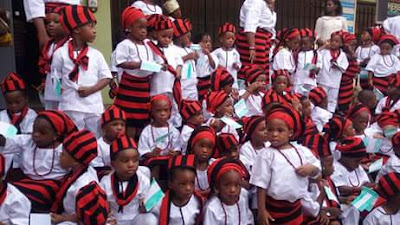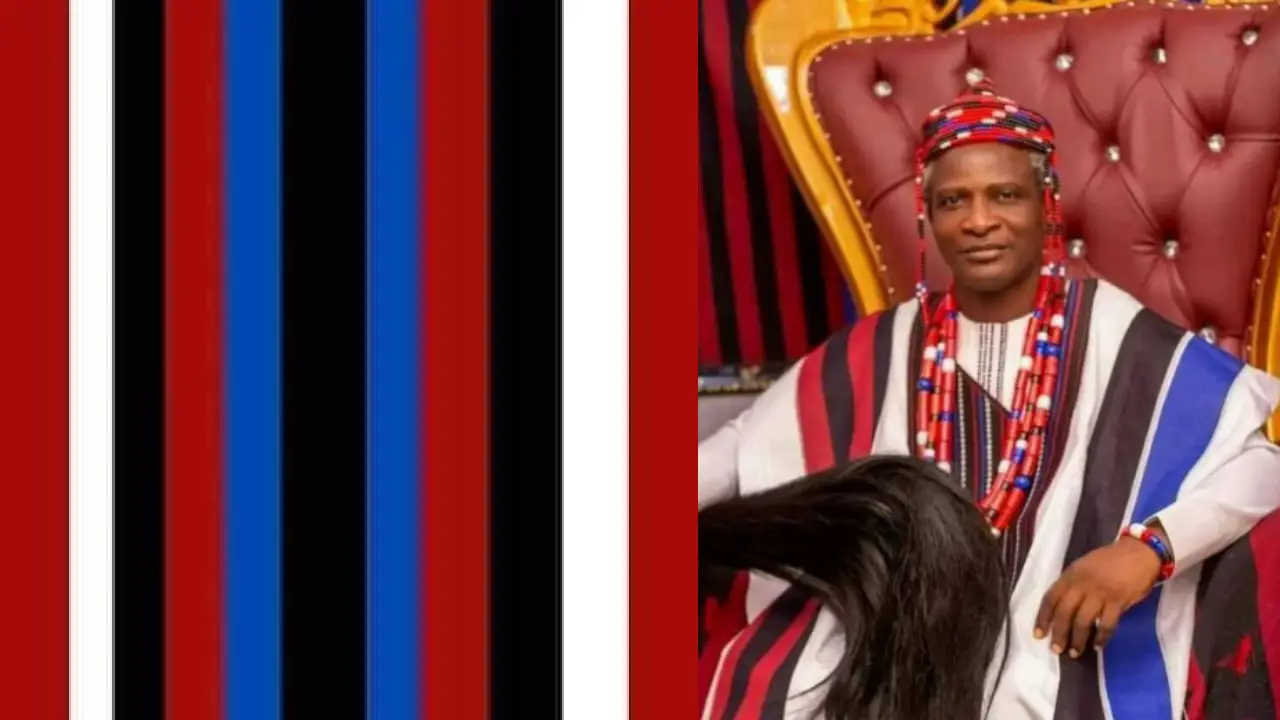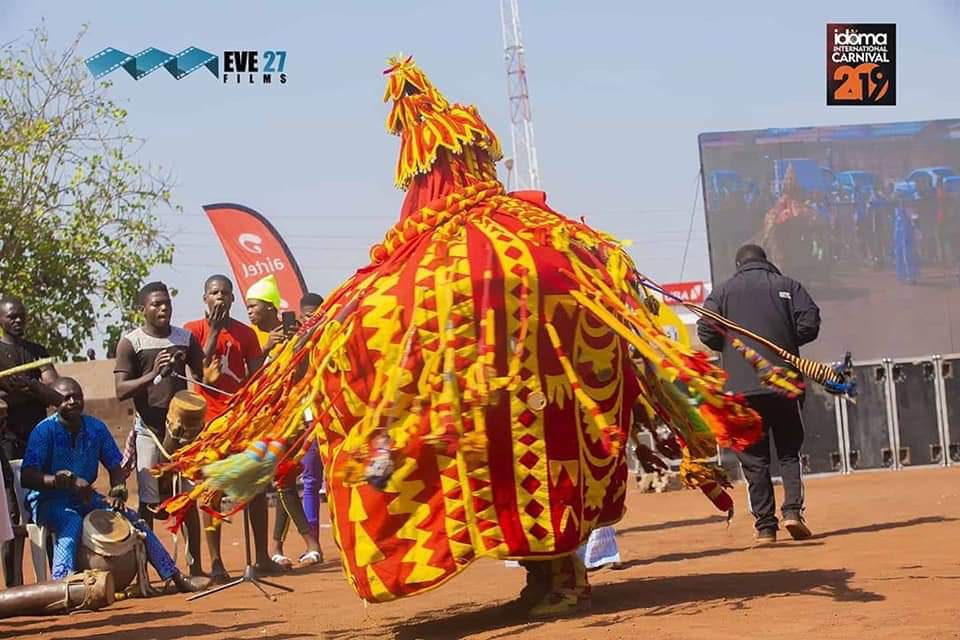Idoma nation: A right and the challenges of nationhood
By Dr. Stephen Ochefu Alapa
Introduction
On professional standard, I consider myself not competent enough to address the above topic but ethics, morals and my educational standard compel me to bare my mind on the topic – “An Idoma Nation, a right and the challenges of Nationhood”.
I choose to embark on this academic excursion as a result of my passion and obligation to the Idoma youths, appreciation of the founding fathers’ enviable protection of our culture, tradition and moral standard and above all to critically examine the past, present and the future of the Idoma race.
Majority of the Idoma speaking people are in the present Benue state of Nigeria. They are predominantly farmers of high reputation. Culturally, the Idomas are proud and jealous of their cultural heritage.
What is a Nation?
Several political scientists, philosophers, sociologists and other renowned educationists have expressed their opinions on the concept of a nation, time and space could not allow the discussion of all these opinions. However, the intersection of all these opinions could be summarized into the following two sentences – “Nations are culturally homogeneous groups of people, larger than a single tribe or community, who shares a common language, institutions, religion, and historical experience” (Matt Rosenberg, 2011) and “A nation is a soul, a spiritual principle” (Ernst Renan, 1823 – 1892).
What is a state?
A State is a self-governing political entity. When a nation of people has a State or country of their own, it is called a nation-state. Places like France, Egypt, Germany, and Japan are excellent examples of nation-states. There are some States which have two nations, such as Canada and Belgium.
The Idoma Nation
The above views are clear testimonies that Idoma is a nation with a common soul, language, and historical experiences bounded by common spiritual guidance popularly called Alekwu (Idoma ancestors). Erudite Idoma democrats, politicians, scientists, philosophers, sociologists, spiritualists, anthropologists and other fields of education are seriously engaged in the negotiation for the Idoma nation to become a nation-state. May our efforts not be in vain – Amen.
Criteria for sustaining a nation
In political parlance, homogeneity in a society does not necessary imply monolithic views of the members but largely depends on the capacity of the members in the society to harmonize their views based on the common objectives of the society. Modern nationhood cannot be based on unitary religion, common language, same ideological perception or at worst wealth; it must be based on common principles, desires to develop and on genuine efforts to resolve internal conflicts.
Experiences have shown that the most effective way to destroy a system is to directly interact with the internal forces within the system; hence the survival of any nation depends on the strength of the internal coercive force within the system that can detect and effectively repel any form of external forces. Colloquially speaking, “Eko no Nmi’igwi aa yo’okwu igwu”. (An Idoma Adage). Meaning that, “the maggot that kills the guinea-corn stalk is inside the bottom section of the guinea-corn stalk”
The survival of any nation, adherence to its enviable culture, religious belief and security of its foundation are functions of the economic activities in the nation. The functional relationship makes economic well-being a necessary criterion for the preservation of any nation. A nation that is not economically viable cannot preserve and protect its values from external forces and as a result might go into extinction or produce a hybrid that is not homomorphic with the original even if the name is same. The construction of a nation should be based on ethical values, rational ideology and critical reviews of lessons from experiences in order to avoid repetition of past mistakes.
Potential Challenges in a Nation
Idoma nation cannot exist as an Island from the rest of other nations and as such could also experience challenges facing other known nations of the world.
The following challenges could be considered threats to the survival of our nation:
· Object poverty in material well-being
The poverty level in Idoma land is compelling our youths to adapt attitudes such as, robbery, self-centeredness, unhealthy rivalry, ritual killing, hero worshiping etc. that are inimical to the corporate existence of the Idoma race. These attitudes are considered foreign because Idoma people are historically friendly, hospitable, accommodating and above all, Idoma people are hardworking and satisfied with whatever God has given to them.
· Lack of modern infrastructures (motor able roads, standard educational institutions, health facilities, clean drinkable water, Electricity).
Modern economic activities depend largely on efficient communication system, educationally enlightened manpower and the security of the society. It is however sad to observe that the provision of all these are being threatened as all efforts to provide them have not yielded any significant result.
· Insecurity situation in Idoma land.
Idoma land was very peaceful and accommodating but the influence of other cultures due to the exposure of our youths to other cultures is responsible for the level of insecurity we are now experiencing in the land. A Russian poet Alexei (1998) said “When the string of love, affection, brotherhood in any society is cut, then the members of such society will remain individual hostile enemies”. A critical analysis of the quotation above reveals that individuals in our society are fighting and killing each other because the string of love and affection that binds us together has been cut. Therefore, with the level of insecurity, the nation lacks all that is required to form a meaningful nation.
· Influence of foreign culture
Idoma children are exposed to other cultures that are not in consonant with their inherited training and due to insufficient orientations from parents/guardians/relations, some children renounce their highly-valued cultural background for money-coated dishonor in contrast to the principles of the Idoma people.
Suggested remedies to the challenges
The Idomas have found themselves in the Nigerian nation not by accident but by the divine grace of God with a purpose. It is the duty of the Idomas – children, youth and old to work hard and identify the purpose for creating the Idoma Nation.
The children and the youth should avoid specializing in finding faults, they should make use of what they have and think of how to improve or hand over same to generations behind them.
It is an act of laziness to report your father/uncle/senior brother or sister to your own children rather; you could inform your children that despite all odds you have been able to provide a better life for them. I would like to suggest the following ways in which we can preserve and protect the Idoma nation.
1) Leaders and other individuals in Idoma land should reduce their individualistic tendencies. All decisions and actions of every member of the society should place emphasis on overall societal objectives above individual or sectional ideology. Envy, hatred and unwarranted crisis in a society should be brought to the barest minimum for individuals in the society to jointly work towards a common objective.
2) Our positive feelings for others should be a matter of practice rather than mere rhetoric full of empty promises.
3) Media houses should publicize more of good behaviours and characters in our society rather than advertising criminal activities. Anything that has value must promote that value. In the present practice that the dominant information in our media houses is all about criminal activities will only propagate crime. The younger ones are now looking at crime as a way of life and as a result, it is becoming more difficult to combat crime in our society. What was known as appreciation has developed to be known as corruption, stealing became robbery and metamorphosed into kidnapping, slave trade has been modified to child trafficking etc.
4) Individuals should strive hard to avoid having personal enemies and if for any reason that having enemies could not be avoided, then the reason should be purely ideological.
5) Our critique of others should be devoid of personal promotion but based on the common objectives of the society.
6) When a bad behaviour is noticed in our society, efforts should be concentrated on finding out the motives and fight the motives rather than its effects.
7 Our educational values should focus more on moral standards, affection for each other, cultural promotion, economic emancipation and defense of our nationhood. Idomas are appreciated for their charitable culture; just for few examples, Adoka women possess their respected nick-name (Ooga) due to their generosity and the Edumoga people are internationally recognized for unbounded hospitality to everybody irrespective of race.
Conclusion
Every son and daughter of Idoma has a sovereign right to uphold the Idoma culture however we should be mindful of the challenges and effectively plan on how to overcome them. Getting a nation is one achievement but sustaining it is equally important. The challenge that faces every Idoma child (child, youth and old, rich or poor) is that as he or she goes out to face multitudes of Idoma children, amongst them amidst the stumbling and fumbling may be Newton or Einsteins, Obamas, and Darwins of tomorrow. Idoma nation is potentially great, but kinetic force is required for national emancipation. Unity generates knowledge and knowledge generates power, but knowledge resides only in the minds of men/women who first must learn and be taught, and power is tyranny unless guided by insight and wisdom, justice and mercy.
By Dr. Stephen Ochefu Alapa
(Umogidi–Entekpa Ward, Benue State)
National Commission for Colleges of Education, Garki, Abuja
For Advert: Call 08171607004, 09058228464 Follow us on Twitter @idomavoice, @idomanews Send us releases at idomavoice@gmail.com


















